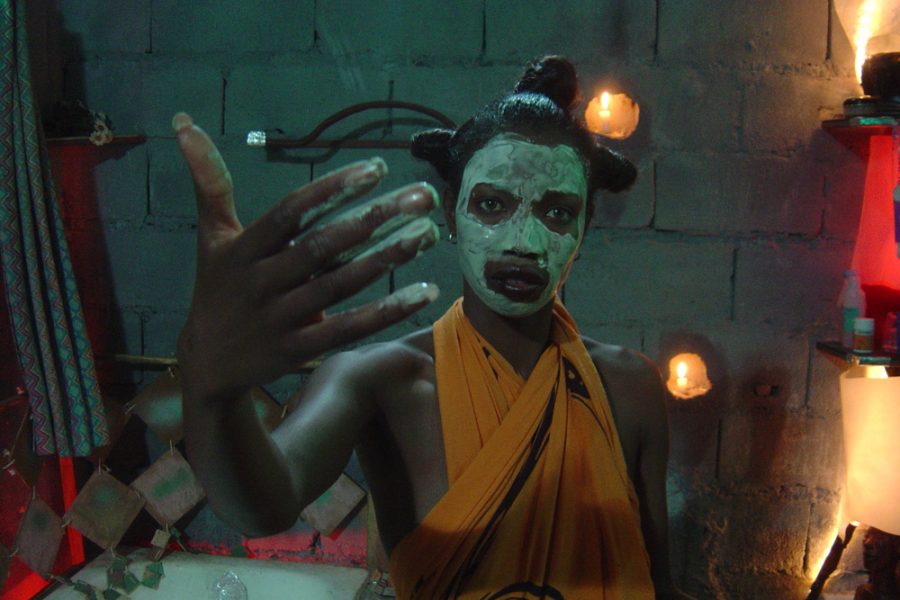Africa in Motion is showing at Filmhouse, Edinburgh and Glasgow Film Theatre, Thu 25 Oct – Fri 2 Nov. Click here for more information.
Steeped in one of the most complicated historical struggles for freedom and identity, Africa has been redefined and redefined over the decades. How has modern Africa emerged from its composite, turbulent and shapeshifting roots? This question has generated often blinkered accounts of political independence and modernisation, told from the perspective of the western bourgeoisie who look at the continent through lenses of pity, objectification and alienation.
The last six years have seen Africa in Motion celebrate the vibrancy at the heart of African art. There has been a huge increase in the amount of work produced across the continent, and certainly the film industry of Nollywood has left American studios cowering in its shadow. This year, the festival’s theme is ‘Modern Africa’, which looks to paint a picture of how widespread artistic innovation has become. ‘I think it’s clear what’s being produced’, says festival director Isabel Moura Mendes. ‘It started with Nollywood ten years ago, in terms of the industry, and was spread around in places like Uganda and Tanzania. There was an explosion of creative work coming from the continent; visual and comic book artists, street-art, fashion etc. Part of this idea of Modern Africa is mobility, to say that artists aren’t restricted by space. It has been diversified so that the younger generation can play more important roles across the world – in places like New York, Tokyo etc.’
This sense of place has become an interesting idea in recent years. There is of course a natural connection to the homeland, the physical notion of belonging, but it has become more outward and externalised. ‘For example, there’s a documentary called Colour Bar’, says Mendes, ‘which explores multinational identity. The filmmaker, Roland Gunst, is half-Congolese, half-Belgian. Films like his examine where you come from and ask: What is culture? What is identity? It’s very contemporary in terms of what we can express ourselves. When we talk about where African identity is going in the 21st century, filmmakers and artists actually have a voice and contribute creatively to the conversation.’
It’s astonishing how rapid this development in production has been however. It’s taken only ten years for African filmmaking to skyrocket. Why? ‘From my perspective, it’s evident that technological development has taken a role – African artists are not as restricted. For instance, 35mm is one of the platforms for filmmakers. When you think of HD cams, mobile phones, that makes a big difference. You can not only make it but self-distribute it. This kind of thing is happening across the continent’ (it’s worth remembering that Africa has the largest number of mobile phones and networks in the world). Mendes explains that ‘films are also being distributed by The Africa Channel and Buni TV who are sponsors of our short film competition. Buni TV is an online platform that streams films around the world.’
But how is non-streamed content witnessed worldwide? Is it easy for African filmmakers to have their work screened internationally, at festivals like AiM? ‘Unfortunately, with the way the distribution system is set up, it’s very difficult for items which aren’t produced through Nollywood to break through the distribution market’, reveals Mendes. ‘Other African films can be marginalised and underrepresented even in arthouse cinemas. More and more however, cinemas like Filmhouse and GFT are interested in exploring this work and it’s been very rewarding. Film Africa in London is another festival which creates space to show African film to the public. These are important opportunities for filmmakers to actually exhibit their work to a so-called westernised world.’
One thing that has undoubtedly affected filmmaking globally, particularly guerrilla documentary, is the Arab Spring. It’s interesting how this will influence African filmmaking, whether it will have direct consequences, or if it will be integrated into a wider discussion of freedom and identity. ‘I don’t think the impact has a definitive answer just yet’, says Mendes, ‘and that’s one of the reasons that makes it so interesting. All of this is so recent; artists, poets, filmmakers are all trying to understand how this will impact on their artwork and how they can communicate to their audience. Some of the documentaries contribute to this but they’re not definitive’.
‘There is a series of short documentaries that were produced with the British Council and the Scottish Documentary Institute. They went to Libya, Morocco and produced them with local filmmakers. So they had the opportunity to be there a couple of months after the events had taken place. I’m very curious to sit in on these discussions and listen to opinions – it’s another way of finding out some of the answers to certain questions. This is an on-going discussion and ours will be a very interesting one.’ This will be the defining characteristic of this year’s festival: to engage with issues concerning Africa’s future in a positive and ultimately constructive way. Africa in Motion paves the way for progression – and shows how we can be part of it.


